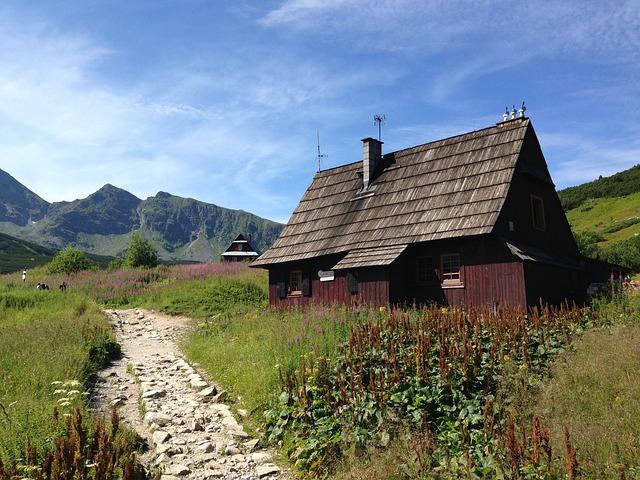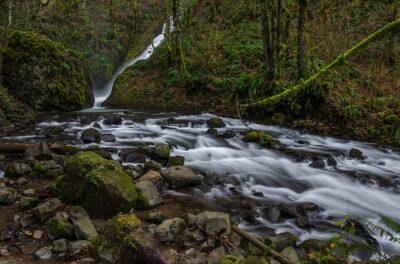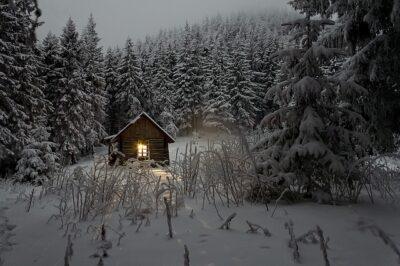Living close to nature in the great outdoors is an appealing lifestyle to many. Fresh air, sunshine, privacy, simplicity, old-fashioned values, freedom from alarm clocks and business suits, delightful proximity to flora and fauna — it all sounds great. Where do I sign up?
As one who has spent much of my life immersed in various aspects of the great outdoors, I can testify that it is indeed truly wonderful. Mostly, anyway.
Many lifestyles embrace a closeness with the outdoors. Homesteaders, farmers, forest workers, preppers, hikers, campers, backpackers and others devote at least part of their lives, either for fun or out of necessity, to rubbing elbows with nature.
Much of the time the relationship between humans and outdoors works well. But sometimes it wasn’t meant to be.
Following are a couple of anecdotal stories to explain what I mean.
When my son was in high school, he and his friends wanted to try winter camping. Or at least they thought they did. I should clarify that by “winter camping,” I do not mean trekking through winter conditions to spend the night in a heated lodge or a primitive cabin, or even in a camper.
New Solar Generators Are 4 Times More Powerful Than Previous Ones!
The boys wanted to spend the night in sleeping bags, in a tent, on the snow, in Maine. It took them a while to talk their parents into giving it a try, and it turned out to be only me and my husband who consented to attempt it. We decided to do it together.
Not one of the boys enjoyed it. They had been allured by the idea of outdoor winter camping and the way it seemed like life on the edge. But in the end, it was cold, and awkward, and the block of cheese froze solid and we were unable to cut it, and the flashlights tucked into our sleeping bags with us overnight — to keep the batteries working — were every bit as uncomfortable as it sounds.
Years later, my husband and I were spending the night at a public campground in much warmer weather, and glanced up from our morning coffee to see a man striding down the road past our tent site, anger and purpose in every step. He was carrying an armload of camping gear. We watched, mesmerized by the drama unfolding before us, as the man flung his load into the dumpster and went back for another. By his third trip, my husband quipped that this was probably the guy’s last time camping.
Outdoor life is not for everyone. Of all the hikers starting out in Georgia intending to hike the Appalachian Trail, only 10 to 15 percent make it to Maine.
A major key to success at living life outdoors — or to success at any lifestyle for that matter — is to ease into it. If your future plans include bugging out to a cabin in the woods or pulling up city stakes and relocating to a commercial dairy farm, you might want to have a dress rehearsal before the curtains go up on the performance that really counts.
It is certainly possible to dive into an outdoor-oriented life and succeed without any prior experience. But what if you hate it? The loss of face or of thousands of dollars’ worth of gear by quitting early would be difficult, and failure at an outdoor life when you have sunk your entire life savings or preparedness plan into it could be even worse.
Please consider trying out the great outdoors on a small scale before you commit to a life there.
Maybe instead of investing in expensive camping gear up front, you could try renting or borrowing what you need for a few test runs. You may even want to start with something moderate, such as a furnished hut or wilderness bed-and-breakfast, before loading a tent into the back of your car or packing up a backpack for a week in the backcountry. It might be a good idea to do some research before you go, but always bear in mind that things can be different on paper than they are in real life. If you can find an experienced outdoorsperson with whom to tag along on your first few forays into the wilderness, that’s a bonus. Many areas have outing groups, which are also a great option.
Restore Your Old Blades To A Razor’s Edge In Just Seconds!
If farming or homesteading is your dream but you haven’t had the opportunity to spend much time off the pavement, consider taking classes or finding a mentor. You might watch for programs offered by local organic or permaculture groups, public adult education departments and cooperative extension programs. Attending expos, demonstrations and trade shows are also good possibilities.
I recommend immersing yourself in your future community of choice as much as possible, even before actually practicing their activities. To do this, you can get to know the vendors at your farmers’ market; most of the ones I’ve met are friendly and open about their farming background and willing to give free advice. Many of them welcome farm visits and volunteers as well.
Another way to become involved in a community of homesteaders is through social media. In addition to informational and educational pages such as this one, there are plenty of local groups in most areas which focus on gardening, livestock, homesteading, preparedness or survival.
Volunteering is a great way to get involved, as well. Consider helping out at the livestock barns or judging tables at an agricultural fair, working with youth groups, or doing odd jobs behind the scenes at an agricultural trade show.
If you are devoted to preparedness and plan to escape to a wilderness location in case of disaster, spend time there before it is your only option. If you absolutely loathe everything about being outdoors — the bugs, the snakes, the mud, the humidity, the isolation, the boredom, the cold, the heat or the workload – then ask yourself if spending the remainder of your life in those conditions is worth it. A bug-out to the woods might be the very best option for some people, but not necessarily for everyone.
Reading is always an excellent way to go. Books, magazines, instruction manuals, how-to brochures — all of them offer something to everyone. Even if you find conflicting information among sources, it’s worth reading all you can.
Remember the winter camping kids? The ending turned out happy. The boys had the chance to try something new, and had very little invested in it. We adults invested in a little gear, had a good time, and went on to enjoy many more winter excursions thereafter.
I can only hope that the story of the man seen throwing his camping gear into the dumpster also turned out well.
For everyone else trying to carve out a life in nature, it’s always a good idea to try life in the great outdoors before committing to a lifetime of it. And when it’s time to make the move into all that fresh air and freedom, it will be with confidence that it will be a great fit.
What advice would you add for someone looking to “dive” into a life outdoors? Share your tips in the section below:
 Off The Grid News Better Ideas For Off The Grid Living
Off The Grid News Better Ideas For Off The Grid Living







